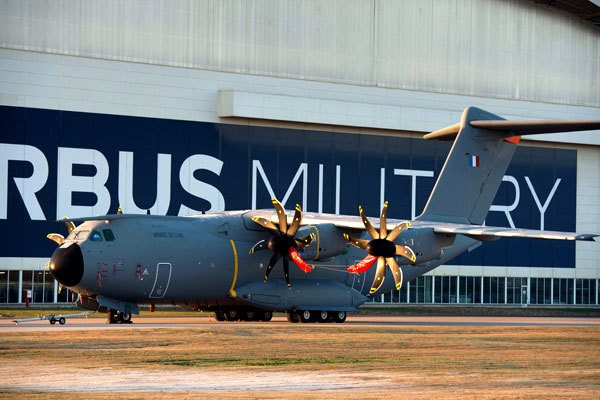Airbus announced Thursday a shakeup in the management of its A400M program as it sought to bring an end to repetitive delays hitting the military transport aircraft.
The company announced Fernando Alonso would take over as head of military aircraft at the Airbus Defence and Space unit, replacing Domingo Urena-Raso.
Airbus delivered the first of the turboprop aircraft to France in September 2013, four years late and 6.2 billion euros ($7.0 billion) over budget.
Production delays continue to plague the aircraft, which can transport up to 37 tonnes including Armour or helicopters over a distance of 3,300 kilometers (2,000 miles) to land on unprepared terrain such as sand.
Airbus chief Tom Enders apologized Wednesday to British officials and pledged the company, a leader in the passenger aircraft market, would do everything possible to ensure it had seven A400Ms in service by the end of this year.
Britain has ordered 22 of the aircraft.
Airbus also shifted responsibility for industrial-related activities concerning the A400M to its operations group, with development and customer deliveries remaining under the scope of the military aircraft business unit.
“These organizational changes are designed to allow more efficient operations inside the Airbus Defence and Space Division and to put the A400M program as well as its industrialization in a position to best address currently existing shortfalls,” said Airbus in a statement.
The company also stressed the aircraft’s great performance, but acknowledged “as for the integration of military capabilities and the industrial ramp-up in particular, we have not been performing at the level which had been expected from us.”
The shakeup comes after Germany’s defence minister sharply criticized Airbus at the weekend, saying the A400M delays were affecting the country’s ability to be a reliable partner in NATO.
Germany received in December, four years late, the first of the 53 A400M aircraft it has ordered. However Der Spiegel weekly reported the German military has found 875 failings in the aircraft including missing insulation on wiring.
The weekly reported earlier this month that the five aircraft Germany is scheduled to receive this year could be delayed.










